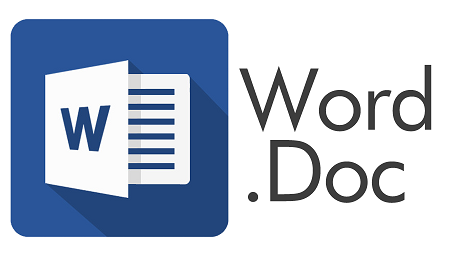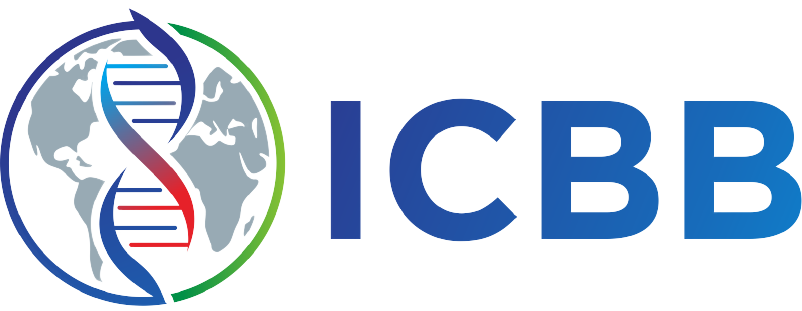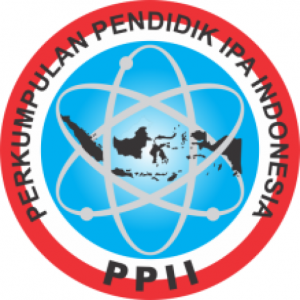Environmental Literacy as a Determinant of Public Health: A Systematic Literature Review on Disease Preventio
Authors
Rusnita Rusnita , Sulistiawaty Sulistiawaty , Erma Suryani SahabuddinDOI:
10.29303/jbt.v25i4b.10734Published:
2025-11-24Issue:
Vol. 25 No. 4b (2025): Special IssueKeywords:
Environmental literacy, disease prevention, systematic literature review, public health.Articles
Downloads
How to Cite
Downloads
Metrics
Abstract
The burden of disease related to environmental conditions remains high in many communities, making improving environmental literacy a crucial prevention strategy. This study, conducted a Systematic Literature Review (SLR) of the Scopus database (2015–2025), aimed to identify educational interventions used to improve environmental literacy in the community, as well as factors supporting and inhibiting their effectiveness. A selection process yielded 17 articles for analysis. Results indicate that community-based interventions, including face-to-face counseling, health cadre training, community digital education, citizen participation in environmental monitoring, and culture-based education, often contribute to increased knowledge, awareness, and practice of disease prevention. The success of these interventions is influenced by community trust in information sources, self-efficacy, the availability of environmental facilities (trash cans, clean water, sanitation), and local leadership. Conversely, skepticism, the normalization of unhealthy behaviors, fatalism, limited infrastructure, and leadership conflict are key barriers. This study confirms that environmental literacy alone does not guarantee behavioral change without social and structural support. Future research recommendations include quasi-experimental research, long-term impact evaluations, and comparative studies across cultural contexts to strengthen evidence for implementation.
References
Al Sultan, A., Henson, H., & Fadde, P. J. (2018). Pre-service elementary teachers’ scientific literacy and self-efficacy in teaching science. IAFOR Journal of Education, 6(1), 25–42. https://doi.org/10.22492/ije.6.1.02
Amin, S. M., El-Sayed, M. M., Abo-Hatab, T. A. E., Hashem El-Monshed, A. H., & Atta, M. H. R. (2025). Empowering Women for a Changing Climate: Exploring the Role of Environmental Literacy in Shaping Risk Perception and Climate Capability in Reproductive-Age Women. Public Health Nursing, 42(6), 1813–1825. https://doi.org/10.1111/phn.70008
Antonelli, M., Donelli, D., Maggini, V., Gallo, E., Mascherini, V., Firenzuoli, F., Gavazzi, G., Zabini, F., Venturelli, E., Margheritini, G., Bassi, I., Iseppi, L., & Meneguzzo, F. (2023). Demographic, Psychosocial, and Lifestyle-Related Characteristics of Forest Therapy Participants in Italy: A Multicenter Cross-Sectional Survey. Healthcare (Switzerland), 11(11). https://doi.org/10.3390/healthcare11111627
Banerjee, D. (2021). COVID-19 as an “Infodemic” in Public Health: Critical Role of the Social Media. Frontiers in Public Health, 9. https://doi.org/10.3389/fpubh.2021.610623
Benis, A. (2021). One digital health: A unified framework for future health ecosystems. In Journal of Medical Internet Research, 23(2). https://doi.org/10.2196/22189
Brown-Fraser, S., Forrester, I., Rowel, R., Richardson, A., & Spence, A. N. (2015). Development of a Community Organic Vegetable Garden in Baltimore, Maryland: A Student Service-Learning Approach to Community Engagement. Journal of Hunger and Environmental Nutrition, 10(3), 409–436. https://doi.org/10.1080/19320248.2014.962778
Chen, S. Y., & Liu, S. Y. (2018). Reinforcement of scientific literacy through effective argumentation on an energy-related environmental issue. Eurasia Journal of Mathematics, Science and Technology Education, 14(12). https://doi.org/10.29333/ejmste/95171
Chen, Z., Razman, M. R., Syed Zakaria, S. Z. S., Lee, K. E., & Wang, J. (2025). Understanding Fluoride’s Influence on Mental Health: AIGC Educational Methods for Undergraduate Students. Fluoride, 58(7).
Cruvinel, V. R. N. (2019). Health conditions and occupational risks in a novel group: Waste pickers in the largest open garbage dump in Latin America. BMC Public Health, 19(1). https://doi.org/10.1186/s12889-019-6879-x
Duplaga, M. (2020). The determinants of conspiracy beliefs related to the COVID-19 pandemic in a nationally representative sample of internet users. International Journal of Environmental Research and Public Health, 17(21), 1–18. https://doi.org/10.3390/ijerph17217818
Ekantini, A., & Wilujeng, I. (2018). The development of science student worksheet based on education for environmental sustainable development to enhance scientific literacy. Universal Journal of Educational Research, 6(6), 1339–1347. https://doi.org/10.13189/ujer.2018.060625
Ernesto, J. V, Machado, D. S., & Lellis-Santos, C. (2022). The presidential election of the human body: applying contextual learning to promote connections between the student and the curricular content. Advances in Physiology Education, 46(2), 228–232. https://doi.org/10.1152/advan.00212.2020
Finch, K. C., Snook, K. R., Duke, C. H., Fu, K.-W., Tse, Z. T. H., Adhikari, A., & Fung, I. C.-H. (2016). Public health implications of social media use during natural disasters, environmental disasters, and other environmental concerns. Natural Hazards, 83(1), 729–760. https://doi.org/10.1007/s11069-016-2327-8
Gonde, L. L., & Chimbari, M. J. (2019). Community awareness of diet needs associated with hypertension and type 2 diabetes mellitus in Hatcliffe, Zimbabwe. BMC Public Health, 19(1). https://doi.org/10.1186/s12889-019-8030-4
Hardianto, H., Mahanal, S., Susanto, H., & Prabaningtyas, S. (2024). Protist literacy: A novel concept of protist learning in higher education. Eurasia Journal of Mathematics, Science and Technology Education, 20(2), em2399. https://doi.org/10.29333/ejmste/14157
Hou, W.-H., Huang, Y.-C., Lu, C.-Y., Chen, I.-C., Lee, P.-C., Lin, M.-Y., Wang, Y.-C., Sulistyorini, L., & Li, C.-Y. (2021). A national survey of ambient air pollution health literacy among adult residents of Taiwan. BMC Public Health, 21(1). https://doi.org/10.1186/s12889-021-11658-z
Johnson, M. F. (2014). Network environmentalism: Citizen scientists as agents for environmental advocacy. Global Environmental Change, 29, 235–245. https://doi.org/10.1016/j.gloenvcha.2014.10.006
Kruger, J. S., Doloresco, F., Maerten-Rivera, J., Zafron, M. L., Borden, H., & Fusco, N. M. (2023). An Innovation Sprint to Promote Problem-solving and Interprofessional Skills Among Pharmacy and Public Health Students. American Journal of Pharmaceutical Education, 87(1). https://doi.org/10.5688/ajpe8852
Laachir, K., Goodman, N., Saini, B., Taibi, M., Jones, P. J., & Vardoulakis, S. (2025). Perceptions of air pollution and health communication for people with asthma among Australia’s Arabic-speaking communities. Health Promotion International, 40(4). https://doi.org/10.1093/heapro/daaf113
Lee, H. Y. (2021). Role of health literacy in health-related information-seeking behavior online: Cross-sectional study. Journal of Medical Internet Research, 23(1). https://doi.org/10.2196/14088
Liang, S. W., Fang, W. T., Yeh, S. C., Liu, S. Y., Tsai, H. M., Chou, J. Y., & Ng, E. (2018). A nationwide survey evaluating the environmental literacy of undergraduate students in Taiwan. Sustainability (Switzerland), 10(6), 1–21. https://doi.org/10.3390/su10061730
Lindsey, M., Chen, S.-R., Richmond, R., Manoogian, M., & Spradlin, J. (2021). Defining environmental health literacy. International Journal of Environmental Research and Public Health, 18(21). https://doi.org/10.3390/ijerph182111626
Liu, Q. (2019). Effects of environmental education on environmental ethics and literacy based on virtual reality technology. Electronic Library, 37(5), 860–877. https://doi.org/10.1108/EL-12-2018-0250
Logemann, M., Aritz, J., Cardon, P., Swartz, S., Elhaddaoui, T., Getchell, K., Fleischmann, C., Helens-Hart, R., Li, X., Palmer-Silveira, J., Ruiz-Garrido, M., Springer, S., & Stapp, J. (2022). Standing strong amid a pandemic: How a global online team project stands up to the public health crisis. British Journal of Educational Technology, 53(3), 577–592. https://doi.org/10.1111/bjet.13189
Marsili, D., Comba, P., & De Castro, P. (2015). Environmental health literacy within the Italian Asbestos Project: Experience in Italy and Latin American contexts. Annali Dell’Istituto Superiore Di Sanita, 51(3), 180–182. https://doi.org/10.4415/ANN-15-03-02
Masoga, M. A., & Shokane, A. L. (2019). Viewpoint: Indigenous knowledge systems and environmental social work education: Towards environmental sustainability. Southern African Journal of Environmental Education, 35. https://doi.org/10.4314/sajee.v35i1.14
Miller, M. D., Valenti, M., Schettler, T., & Tencza, B. (2016). A multimedia E-book—A story of health: Filling a gap in environmental health literacy for health professionals. Environmental Health Perspectives, 124(8), A133–A136. https://doi.org/10.1289/EHP222
Moreno, D. M., Ramírez-Andreotta, M. D., Vea, L., Estrella-Sánchez, R., Wolf, A. M. A., Kilungo, A., Spitz, A. H., & Betterton, E. A. (2015). Pollution prevention through peer education: A community health worker and small and home-based business initiative on the arizona-sonora border. International Journal of Environmental Research and Public Health, 12(9), 11209–11226. https://doi.org/10.3390/ijerph120911209
Morrison, A. K. (2019). Health literacy: Implications for child health. In Pediatrics in Review (Vol. 40, Issue 5, pp. 263–277). https://doi.org/10.1542/pir.2018-0027
Nguyen, M. H. (2021). Negative Impact of Fear of COVID-19 on Health-Related Quality of Life Was Modified by Health Literacy, eHealth Literacy, and Digital Healthy Diet Literacy: A Multi-Hospital Survey. International Journal of Environmental Research and Public Health, 18(9). https://doi.org/10.3390/ijerph18094929
Nurwidodo, N., Amin, M., Ibrohim, I., & Sueb, S. (2020). The role of eco-school program (Adiwiyata) towards environmental literacy of high school students. European Journal of Educational Research, 9(3), 1089–1103. https://doi.org/10.12973/EU-JER.9.3.1089
Oguz, D., Cakci, I., & Kavas, S. (2010). Environmental Awareness of University Students. African Journal of Agricultural Research, 5(19), 2629–2636. https://doi.org/10.18372/2306-1472.60.7570
Pansakun, N., Naksen, W., Boonchieng, W., Ong-Artborirak, P., & Prapamontol, T. (2024). Environmental Health Literacy Regarding Fine Particulate Matter and Related Factors Among Village Health Volunteers in Upper Northern Thailand. Journal of Preventive Medicine and Public Health, 57(2), 138–147. https://doi.org/10.3961/jpmph.23.434
Park, H., Choi, K., Lee, C., & Oh, H. (2025). Associations of green space visitation patterns with sociodemographics, health, and perceptions: A cluster analysis using smartphone Wi-Fi and GPS data. PLOS ONE, 20(6 June). https://doi.org/10.1371/journal.pone.0325697
Patil, U. (2021). Health literacy, digital health literacy, and COVID-19 pandemic attitudes and behaviors in U.S. college students: Implications for interventions. International Journal of Environmental Research and Public Health, 18(6). https://doi.org/10.3390/ijerph18063301
Purssell, E., & McCrae, N. (2020). How to Perform a Systematic Literature Review. In How to Perform a Systematic Literature Review. Springer. https://doi.org/10.1007/978-3-030-49672-2
Ramondt, S., & Ramírez, A. (2020). Media reporting on air pollution: Health risk and precautionary measures in national and regional newspapers. International Journal of Environmental Research and Public Health, 17(18), 1–10. https://doi.org/10.3390/ijerph17186516
Sany, S. B. T. (2022). What do Parents Know about the Environmental Health Literacy in relation to Children’s Health? Journal of Health Literacy, 6(4), 77–87. https://doi.org/10.22038/jhl.2021.61586.1240
Sardi, C. N., Karamperis, M., Lingos, A., Klioumis, N., & Skanavis, C. (2022). Greek Students’ Planetary Health Profile: A Master’s Program in Environmental Communication and Health Promotion. In Climate Change Management (pp. 265–295). https://doi.org/10.1007/978-3-031-09879-6_16
Schollaert, C., Alvarez-Reeves, M., Gillooly, S., Tomsho, K., Bongiovanni, R., Chacker, S., Aguilar, T., Vallarino, J., Adamkiewicz, G., & Scammell, M. K. (2021). Reporting results of a community-based in-home exposure monitoring study: Developing methods and materials. Progress in Community Health Partnerships: Research, Education, and Action, 15(1), 117–125. https://doi.org/10.1353/cpr.2021.0011
Stevenson, K. T. (2014). Overcoming skepticism with education: interacting influences of worldview and climate change knowledge on perceived climate change risk among adolescents. Climatic Change, 126(3), 293–304. https://doi.org/10.1007/s10584-014-1228-7
Sun, H., Jit, M., Cook, A. R., Carrasco, L. R., & Dickens, B. (2018). Determining environmental and anthropogenic factors which explain the global distribution of aedes aegypti and Ae. Albopictus. BMJ Global Health, 3(4). https://doi.org/10.1136/bmjgh-2018-000801
Suprapto, N., Prahani, B. K., & Cheng, T. H. (2021). Indonesian curriculum reform in policy and local wisdom: Perspectives from science education. Jurnal Pendidikan IPA Indonesia, 10(1), 69–80. https://doi.org/10.15294/jpii.v10i1.28438
Tusubira, A. K., Ssinabulya, I., Kalyesubula, R., Nalwadda, C. K., Akiteng, A. R., Ngaruiya, C., Rabin, T. L., Katahoire, A., Armstrong-Hough, M., Hsieh, E., Hawley, N. L., & Schwartz, J. I. (2023). Self-care and healthcare seeking practices among patients with hypertension and diabetes in rural Uganda. PLOS Global Public Health, 3(12). https://doi.org/10.1371/journal.pgph.0001777
Yani, A., Amin, M., Rohman, F., Suarsini, E., & Rijal, M. (2021). Pre-service biology teacher’s perception on local environment problems as contextual learning resources. International Journal of Evaluation and Research in Education, 10(3), 768–780. https://doi.org/10.11591/ijere.v10i3.21091
Zakar, R. (2021). COVID-19 and health information seeking behavior: Digital health literacy survey amongst university students in Pakistan. International Journal of Environmental Research and Public Health, 18(8). https://doi.org/10.3390/ijerph18084009
Zeng, J., & Rahmat, N. H. (2022). Reading Self-Efficacy: Is There a Relationship between Progress and Psychological States. International Journal of Education, 14(4), 1. https://doi.org/10.5296/ije.v14i4.20290
License
Copyright (c) 2025 Rusnita Rusnita, Sulistiawaty Sulistiawaty, Erma Suryani Sahabuddin

This work is licensed under a Creative Commons Attribution 4.0 International License.

Jurnal Biologi Tropis is licensed under a Creative Commons Attribution 4.0 International License.
The copyright of the received article shall be assigned to the author as the owner of the paper. The intended copyright includes the right to publish the article in various forms (including reprints). The journal maintains the publishing rights to the published articles.
Authors are permitted to disseminate published articles by sharing the link/DOI of the article at the journal. Authors are allowed to use their articles for any legal purposes deemed necessary without written permission from the journal with an acknowledgment of initial publication to this journal.


























